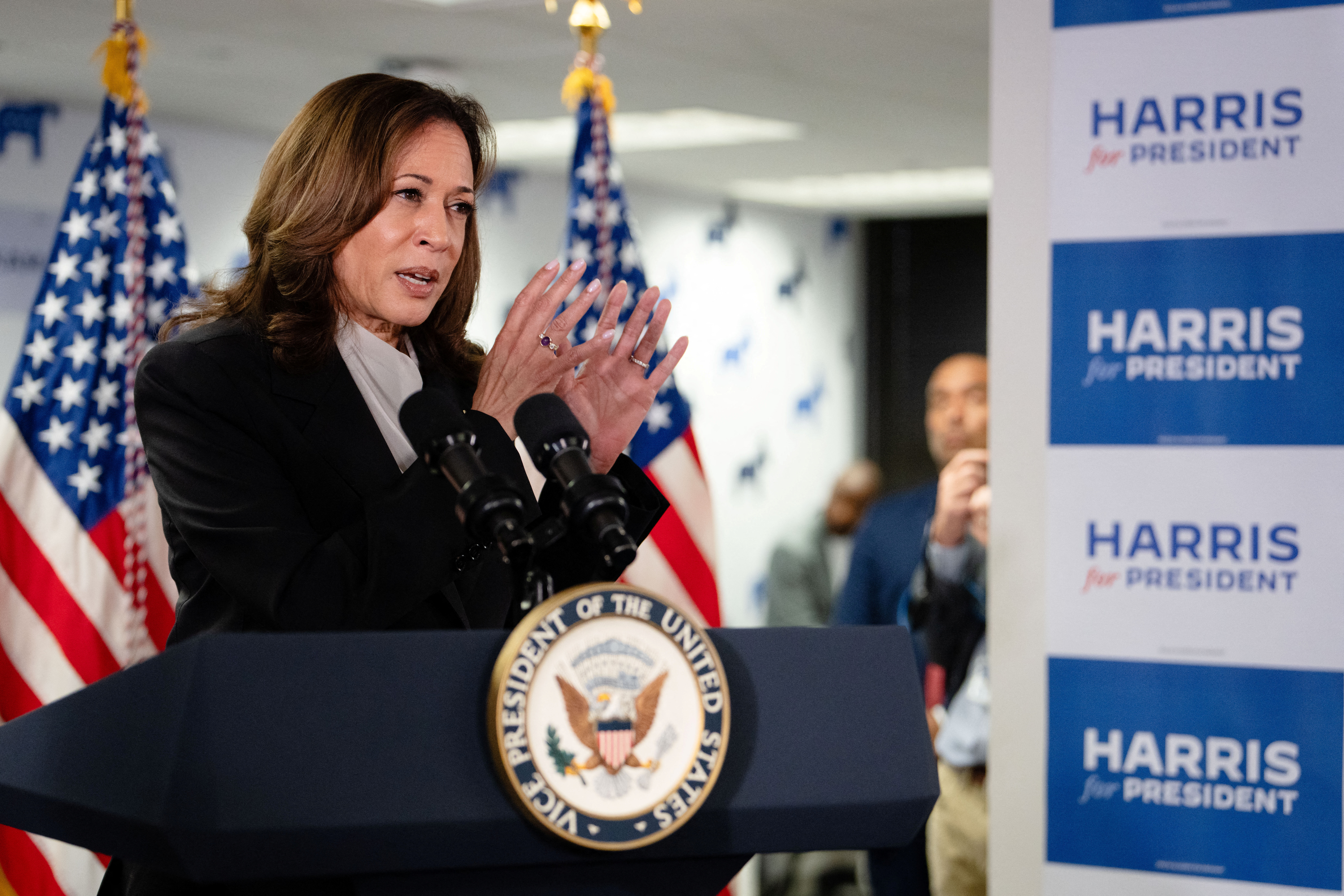Tuesday, 23rd July 2024, would mark the Vice President Kamala Harris‘s first campaign appearance in Wisconsin, a crucial battleground state, as a presidential aspirant. Her road to the nomination was cleared when a sufficient number of Democratic delegates pledged their support to her.
After several weeks of animosity within the party and internal surveys indicating his support crumbling in a contest against Republican competitor Donald Trump, President Joe Biden announced his withdrawal from the reelection campaign on Sunday, making Harris the presumptive nominee for the party.

Less than 36 hours after Joe Biden gave Harris his endorsement, Harris won the nomination on Monday night thanks to the majority of the party’s delegates, who will vote on the nomination, pledging their support, according to the campaign.Harris released a statement late on Monday night saying, “Tonight, I am proud to have secured the broad support needed to become the nominee of the party.” “I look forward to formally accepting the nomination soon.”
The Associated Press conducted an unofficial survey of delegates and found that Harris had more over 2,500 of them, far more than the 1,976 delegates required to win a vote in the upcoming weeks. Though no one else cast a vote in the AP survey, delegates could still theoretically change their minds; 54 delegates stated they were unsure.
The 59-year-old former California prosecutor will have another chance to restart the Democratic campaign and prove that she is the most qualified opponent of Trump thanks to her trip to Wisconsin. At 1805 GMT, Harris is expected to make a speech at a political function in Milwaukee at 1:05 PM CDT.
She hinted at her strategy for taking on Trump on Monday by bringing up her history of going after “predators” and “fraudsters” while serving as the attorney general of California and the district attorney of San Francisco.
“So hear me when I say I know Donald Trump’s type,” she declared in reference to her opponent, a convicted criminal who was found guilty of sexual assault in a civil suit. According to findings from other courts, fraud was committed in his private university, charitable organization, and business.

Wisconsin is one of three Rust-Belt states where Biden was trailing Trump, along with Michigan and Pennsylvania, which are generally seen as must-wins for any candidate.
“Harris has a chance to win over independents and young people who are dissatisfied with their choices,” stated Paul Kendrick, executive director of Rust Belt Rising, a Democratic organization that regularly conducts polls in battleground regions where voter preferences often fluctuate.Harris has been getting a lot of money for her campaign. After Biden resigned on Sunday, her team said on Monday that she had raised $81 million, almost matching the $95 million the Biden campaign had on hand at the end of June.
The “Dembargo” on political donations by Hollywood donors was lifted after celebrities and fundraisers, including TV producer Shonda Rhimes, rapper Cardi B, Oscar winner Jamie Lee Curtis, and others, supported Harris.
In the meantime, Trump and his supporters have made an effort to keep Harris linked to some of Biden’s more divisive positions, such immigration.
“Kamala Harris has a horrifying history of complete ineptitude and failure.Biden’s policies are her policies, and vice versa, according to Trump spokesman Steven Cheung.
It’s unclear if she can improve declining polls in important states.
Speaking with six influential Democrats in Wisconsin, they said Harris gives the party a chance to start over and win over people who weren’t thrilled with Biden and Trump.
According to Milwaukee County Executive David Crowley, Harris—the first South Asian and Black American elected vice president—will also contribute to the resurgence of important Black voters.
“Many of them didn’t come along because they were distracted by his age, distracted by his appearance,” said Crowley.
The conjecture about Biden’s replacement at the top of the ticket has also intensified over Harris’ potential vice presidential opponent.
According to people familiar with internal policy discussions, the small group of individuals being discussed included Kentucky Governor Andy Beshear, U.S. Governor Josh Shapiro of Pennsylvania, Governor J.B. Pritzker of Illinois, Governor Gretchen Whitmer of Michigan, Senator Mark Kelly of Arizona, Secretary of Transportation Pete Buttigieg, and Governor Roy Cooper of North Carolina.









